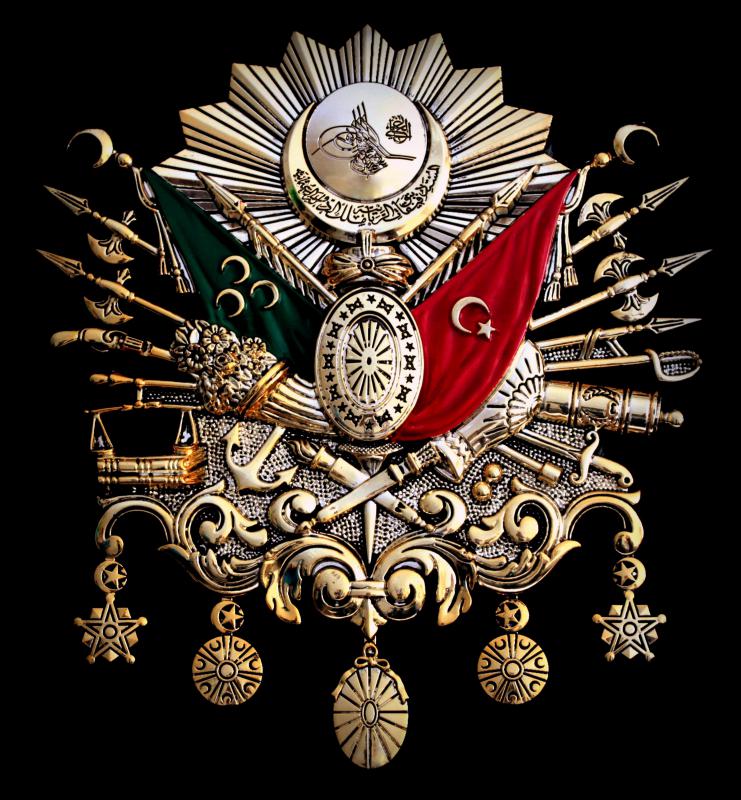At WiseGEEK, we're committed to delivering accurate, trustworthy information. Our expert-authored content is rigorously fact-checked and sourced from credible authorities. Discover how we uphold the highest standards in providing you with reliable knowledge.
What Should I Know About Turkey?
The Republic of Turkey, most commonly known around the world as simply Turkey, is surrounded by water. The Aegean Sea, the Mediterranean Sea, and the Black Sea all touch Turkey. Located partly in Europe and partly in Asia, Turkey shares international borders with eight different countries, most notably Greece and Syria.
Turkey has a total population of 71,158,647, four million of which live in Ankara, the capital. Istanbul, the best known city in Turkey, is also the largest with over 10 million. Turkish, the official language, is spoken by 97 percent of the population, with small groups using Arabic and Kurdish for their everyday communication. Turkey has a high literacy rate, averaging 90 percent of the population despite differences among regions.

Turkey is a parliamentary republic, which means the president is chosen by the parliament rather than directly by the citizens. The Prime Minister, along with the Grand National Assembly of Turkey, are the ones in immediate charge of all the main political offices in the country. Despite being a nation divided between east and west, Turkey has always remain a westernized society, with most of their foreign relations looking to unite the country with Europe and the rest of the West.

Turkey was home to some of the world's oldest civilizations, such as the Ottoman and Byzantine Empires, which date as far back as 334 BCE. This is clear today in the vast ruins that are left strung around the country, and which attract thousands of visitors every year. Troy, or Truva in Turkish, is one of the most notorious archeological sites in the world, along with the Celsus Library in Ephesus.

Not all historical treasures in Turkey are merely decorative. The Blue Mosque or Sultan Ahmed Mosque, for example, is an historical building that still attracts as many visitors as it does locals. Because of its age, Turkey has a rich cultural history which continues today, which is perfectly represented in the work of Turkish writer Orhan Pamuk, who won the 2006 Nobel Prize for Literature. Turkish music and literature has, in recent years, transcended frontiers and become well known in Eastern Europe and Russia.
Tourists also come to Turkey for its incredible nature and pristine beaches. Hot, dry summers make Turkey the ideal destination for those escaping continental winters, and the government has taken full advantage of this by sponsoring local tourism and helping develop a series of resort towns around the country.
AS FEATURED ON:
AS FEATURED ON:













Discussion Comments
I went to Turkey for a study abroad when I was in college. The best thing about Turkey was definitely the food. I love the food!
It's kind of a mix of everything that's in that region. Turks eat white bread similar to Italian bread, that's their staple starch. And they have a variety of cuisines through the country.
I traveled to a province in Eastern Turkey briefly called Adana, and they eat a lot of meat there. In the East, there was a lot more variety for vegetarian dishes, lots of salads and some common foods with Greek cuisine. You can find baklava, stuffed grape leaves and lots of yogurt in Turkey. In Northern Turkey, near the Black Sea, fish is a major part of the cuisine I believe.
@alisha-- No, there is no such dress code in Turkey. If you look at Turkey on the map and the region, it is surrounded by many Islamic countries. I personally consider Turkey to be more Middle Eastern than European culture wise. But when it comes to governance and laws, it's run according to European law.
You will see women who wear headscarves in Turkey as well as those who don't. It's a personal choice and the government has no say in it. So you don't need to worry about that. How you should dress in Turkey has to do with where you're at if you ask me.
If you're in big cities like Istanbul, Izmir or some of the coastal cities in the South, you can wear shorts without being stared at. But this is not true for smaller cities and towns, particularly in central Turkey. Turkish people are very welcoming and kind, but dressing too openly can get you some stares and awkward looks in certain places.
I might be taking a tour to Turkey next year and I would like to know more about religion in Turkey and any dress codes or etiquette related to it.
I've traveled to Saudi Arabia before and I was required to cover my head because I'm a woman and due to the Islamic rules. I know that there is a large Muslim population in Turkey so I would like to know if there are similar rules in Turkey or not.
Can you please share your insights and recommendations if you've been to Turkey or know about it?
Post your comments